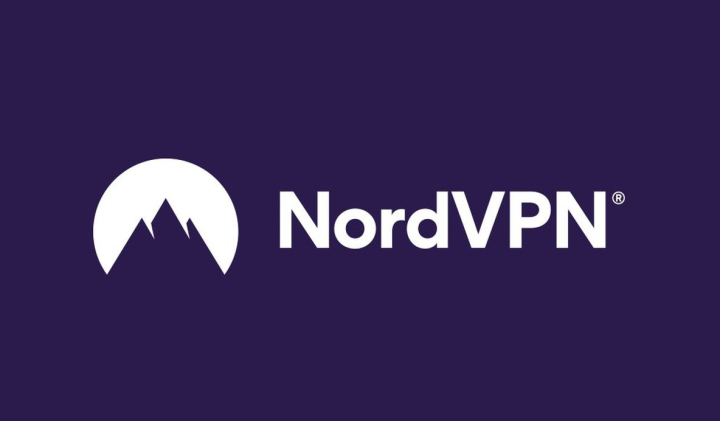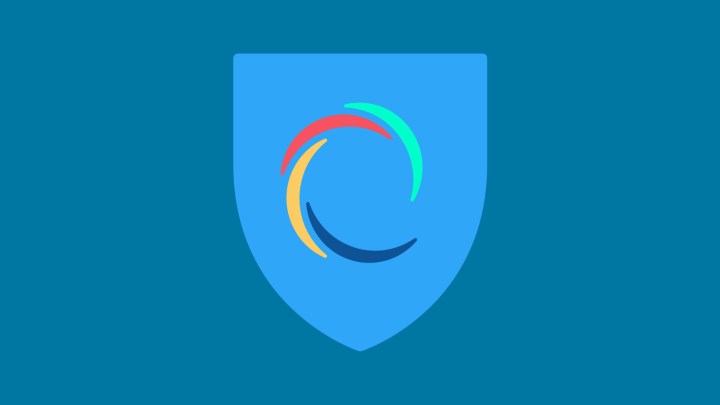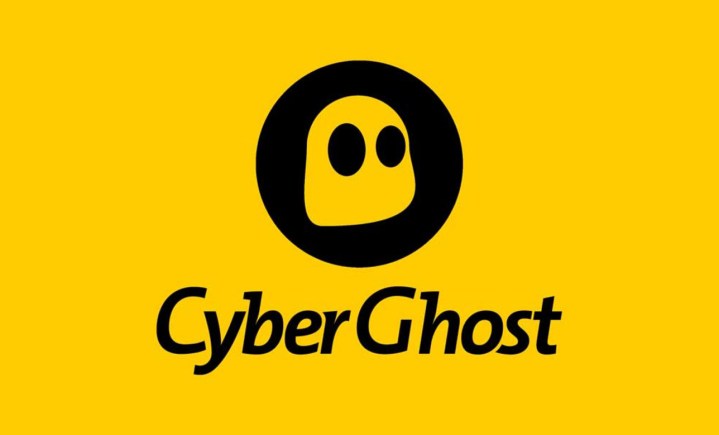Linux has always been an underground option for high-tech individuals that want to take control of their digital life, and in that same vein, a VPN for Linux is the perfect companion. Although Linux isn’t the most popular OS out there, there is still a wide, loyal userbase that swears by the operating system’s superiority. It is open-source and fully customizable, so if you know what you’re doing with your computer, you can create a completely unique system catered to you. Luckily, VPN companies haven’t forgotten about this hidden gem of an OS and have enabled services on the platform. You can find out some of the best Linux VPNs for you in the list below.
A VPN for Linux is just as important as any other platform or device because as long as you’re on the internet, your information can be exposed and used maliciously without your consent. We would certainly recommend purchasing a premium subscription from our list of best VPN services as you can enjoy benefits such as unlimited global bandwidth to help keep you protected round the clock. While there are great free VPNs (check out our best free VPN list) that are worth checking out if you’re on a budget or just want to test a VPN out, a premium subscription is the way to go. This article will help guide you through our top picks that were curated through diligent research and analysis. For the best Linux VPNs, look no further!
1. NordVPN

- Country of registration: Panama
- Clients supported: iOS, Android, Windows, MacOS, Linux, Smart TVs, Routers
- Cost: $12 per month
- Number of servers: 5,237+
- Simultaneous connections: 6
- Best VPN for Linux overall
When it comes to popularity and accessibility, NordVPN takes the cake. By far the most popular and overall the best VPN for Linux on the market, NordVPN is an amazing choice for those who are new to VPNs and computer security in general. If you’ve been on the internet, you’ve most likely seen ads for this service. The company’s marketing budget is nothing to scoff at and is indicative of an app that has the capacity to cater to all customers. Of course, we understand that any company can market a product and make it look appealing — so we dove in and really analyzed what this VPN provides customers.
First of all, we know that security is paramount with VPNs. You can have a pretty product that promises the world, but if you don’t have the basic security knocked down to a tee, then you’ll quickly lose customers. Luckily, NordVPN is one of the trailblazers of the industry and constantly pushes the standards of security higher and higher. Its NordLynx, OpenVPN, and IKEv2/IPsec protocols ensure that you safely connect to the internet. On top of that, your connection is encrypted with AES 256-bit, which is frequently adopted by governments, militaries, and cybersecurity firms across the globe.
For only $12, you have access to a speedy yet secure VPN that can satisfy your digital needs. Whether you’re simply browsing the internet, streaming, or making sensitive transactions, NordVPN can help facilitate all that while keeping you safe. If you don’t enjoy the service, you’re entitled to a hassle-free refund with the company’s 30-day money-back guarantee. Simply contact a 24/7 customer support representative, and they’ll help you with every step along the way. Although once you try NordVPN, we doubt you’ll want to leave!
2. PrivadoVPN

- Country of registration: Switzerland
- Clients supported: iOS, Android, Windows, MacOS, Linux
- Cost: $8 per month
- Number of servers: 200+
- Simultaneous connections: 10
- Free 10Gbps per month with the free plan
PrivadoVPN is a relatively new player in the VPN industry, having been founded in 2019 in Switzerland. But despite its infancy, this company has cybersecurity heavyweights backing it, with its team members accumulating hundreds of years in various privacy and security industries. The result is a VPN that is fully dedicated to user privacy and information protection and makes it a priority. All that for the relatively low price of $8 per month.
Unfortunately, PrivadoVPN doesn’t have the largest selection of global servers to connect to. While the 200 servers should be enough for most users, it would certainly be nice to have more options to choose from. Of course, there are servers located on every single continent, so you can unlock geo-blocked content on websites like Netflix. Despite this, each and every server comes packed with elite security and modern protocols. Combined with its strict no-log policy, you can feel safe knowing that your data is completely secure and leak-proof.
What makes this one of the best VPNs for Linux is its generous free data plan. If you feel that $8 per month is too steep for you, or if you simply want to test out the service before purchasing a subscription, you can enjoy 10Gbps per month under PrivadoVPN’s free service. Unlike most freemium apps, PrivadoVPN implements the premium servers in its free plan. That means that you can enjoy the full benefits of a VPN without having to pay for anything: no speed throttling, full protection, and no more geo-blocking.
3. ExpressVPN

- Country of registration: British Virgin Islands
- Clients supported: iOS, Android, Windows, MacOS, Linux, Routers, Smart TVs
- Cost: $13 per month
- Number of servers: 3,000+
- Simultaneous connections: 5
- Amazing VPN for streaming
In terms of competition and popularity, ExpressVPN is right up there vying for the title of most popular VPN. ExpressVPN and NordVPN are both considered the top two VPNs by many analysts and blogs, and we have to agree. The two companies both have the most budget to market aggressively to acquire new customers, which is always great as it raises the standard and pushes the boundaries for the industry. Through your research, if you choose ExpressVPN as your VPN of choice, then you’re in good hands.
We have to recognize, however, that ExpressVPN can be pricey. The company constantly develops its own security technology, such as Lightway and TrustedServer, which requires a lot of research and dev time. Lightway is a revolutionary, modern protocol that ensures better security and, in conjunction with its AES 256-bit encryption, ensures your information will never leak when connected on the internet. The TrustedServer technology is a new way of processing user information on server hard drives. Most servers store basic user information like IP address and search history on hard drives until the command is processed to erase it. TrustedServer erases all data as soon as you turn your connection on or off.
If you prioritize lightning-fast streaming and browsing speeds with amazing security features, ExpressVPN is one to look out for. The revolutionary security measure is certainly worth the hefty $13 per month price tag, but unfortunately, ExpressVPN doesn’t allow for many simultaneous connections at only five. If you want to cover multiple devices apart from your Linux, ExpressVPN doesn’t give you much room for that. Instead, you may want to use ExpressVPN as a router VPN instead.
4. Surfshark

- Country of registration: British Virgin Islands
- Clients supported: iOS, Android, Windows, MacOS, Linux
- Cost: $13 per month
- Number of servers: 3,200+
- Simultaneous connections: Unlimited
- Free unlimited global bandwidth
For those who want maximum value for their money, we urge you to look no further. With a single Surfshark subscription, you can enjoy unlimited simultaneous connections along with unlimited global bandwidth. That’s right, unlimited! With Surfshark, you can make sure all of your devices are protected, and you can even invite your family and friends and teach them the ways of VPNs. Surfshark is consistently one of the best VPNs we promote due to its amazing value. With its unlimited global bandwidth, you don’t have to worry about data caps limiting your usage, so you can just forget about it and let it do the work for you!
While Surfshark is at the same price point as ExpressVPN, the enticing unlimited simultaneous connections on multiple devices and unlimited bandwidth seem like it’s a more accessible option for customers. While Surfshark might not develop its own security measures like ExpressVPN and its Lightway protocol, it is still beefy with AES 256-bit encryption, OpenVPN & IKEv2/IPsec protocols, private DNS & leak protection, and an effective kill switch. So while it may not be as revolutionary as some of the other competitors, it is definitely an underground choice that should be considered more by customers who are looking for a great steal.
But that’s not all. A Surfshark subscription also gives you added extras like CleanWeb adblocker for absolutely free! Surf the web in peace without annoying popups and ads while keeping safe from malicious trackers and adware. All of Surfshark’s features were independently audited by third parties as a way of cementing its place in the industry as a great consumer pick. On top of that, if you ever need help, then there’s a helpful 24/7 customer support line that can help you with anything you may need. We love Surfshark and all its various features, and if you can commit to $13 per month, we recommend it for everyone. All of these features lands Surfshark definitively on our list of best VPNs for Linux.
5. Hotspot Shield

- Country of registration: United States
- Clients supported: iOS, Android, Windows, MacOS, Linux
- Cost: $8 per month
- Number of servers: 1,800+
- Simultaneous connections: 5
- Great budget-friendly option
Hotspot Shield is regularly advertised as the most popular iOS and Android VPN, and it very well may be. However, not many people know that it provides comprehensive services for a host of different platforms like Linux. The app is easy to install and set up, regardless of where you’re using Hotspot Shield. If you’re looking for a great budget-friendly VPN at only $8 per month, we encourage you to research this VPN and see if it satisfies your need.
A solid reason as to why this may be one of the best VPN for Linux is its amazing free data plan. At absolutely no cost, you’re entitled to 500Mbps of free data every single day. That adds up to around 15Gbps every month! This freemium model helps fund Hotspot Shield’s premium servers as it helps convert non-paying customers into loyal paying ones once they have a feel of the VPN’s great servers. You may experience a bit of a speed difference between the free and premium servers, however, 500Mbps per day is extremely generous regardless of the difference in speed.
Hotspot Shield may not have the most global servers available to customers, but almost 2,000 is still a hefty number that is more than enough, regardless of what you’re using the VPN for. If you enjoy using a VPN to unlock geo-blocked content on Netflix and other streaming platforms, Hotspot Shield provides amazing speeds regardless of where you are. Alternatively, if you just want to enjoy basic protection when browsing the internet, you can feel safe knowing you’re connected to one of the best VPN for Linux’s secure servers.
6. CyberGhost

- Country of registration: Romania
- Clients supported: iOS, Android, Windows, MacOS, Linux, Routers
- Cost: $13 per month
- Number of servers: 7,300+
- Simultaneous connections: 7
- Amazing security on each server
Last but not least, CyberGhost is a unique choice to pick up due to its zany branding and special color scheme. Unlike other VPNs, CyberGhost flaunts a bright yellow aesthetic in hopes of capturing the attention of new customers. It’s the enhanced security, special NoSpy servers, and strong commitment to anti-censorship that keeps customers around and cements CyberGhost as one of the best VPNs for Linux on the market. If you’re looking for a product that can work in tandem with your Linux OS and help keep your computer and personal data safe and secure, have a look at this VPN.
CyberGhost gives paying customers the choice to connect anywhere around the world with its 7,300+ servers, which is by far the most on this list. To complement that, you get access to seven simultaneous connections to ensure your personal devices are protected across the board. If you have more than seven devices, feel free to set up your CyberGhost account on your router instead. That way, you can set everything up and forget about it — you’ll have comprehensive protection on every single device.
In terms of the best Linux VPNs, we love how CyberGhost commits itself to giving customers around the world the opportunity to experience the open internet. Sometimes those of us may take our internet connection for granted and don’t realize the true benefits of being able to visit any website we wish whenever we want. A VPN can be a gamechanger for those who live in areas with restrictive governments or malicious ISPs, as they can anonymously surf the web and enjoy global content. If you’re a resident in one of these countries, CyberGhost can help you immensely, and we would certainly recommend you check it out.
Can you use a VPN on Linux?
Just like any other operating system, the best VPNs for Linux are available on the market. Ubuntu, the developer of Linux, developed the OS inherently more secure than others like Windows because of how user permissions work. By running a .exe file on Windows, you’re handing over explicit permissions to the app, whereas on Linux, that is severely limited. Additionally, it’s way harder to get a virus on Linux because they only infect the account the user is logged in on and not the “superuser.” So essentially, a Linux user can just delete that account and create an entirely new and clean one.
That is to say that while Linux may be more secure and empowering for the user, it is also more complicated. While things are getting simpler now, traditionally, you had to do almost everything manually on the operating system. The best VPN for Linux help keeps things simple, but you may need to understand the manual process just in case. Here’s how to set up a VPN connection on Linux (or check out the official Ubuntu help page):
- Open Activities and start typing “Network.”
- Click on Network to open the panel.
- On the bottom left of the list, press the + button to add a new connection.
- Choose VPN from the list.
- Select what kind of VPN connection you have (you can find this information on the account page of your VPN subscription).
- Fill in all VPN details (you can find this on your VPN account page).
What is the best VPN for Linux?
The best VPN for Linux is subjective, but there are many unanimous opinions on which perform better than others in terms of security, accessibility, and speed. It’s always important to conduct your own research when it comes to purchasing a subscription. After all, it’s your hard-earned money that you’re spending at the end of the day! The Digital Trends team analyzes and tests hundreds of VPNs to give you a curated and comprehensive list to help guide you, but the final decision is yours.
For beginners in the industry looking for a great all-around VPN, we would recommend NordVPN. It is the most popular VPN for Linux out there and provides the most comprehensive service. While there may be better VPNs in different aspects, NordVPN is amazing for those who want the whole package. You can purchase a subscription for only $12 per month, download the program, set it, then forget it. You won’t notice any dips in your internet speed, and you don’t have to worry about all the technicals behind the security features. For that reason, we think NordVPN is one of the best Linux VPNs.



